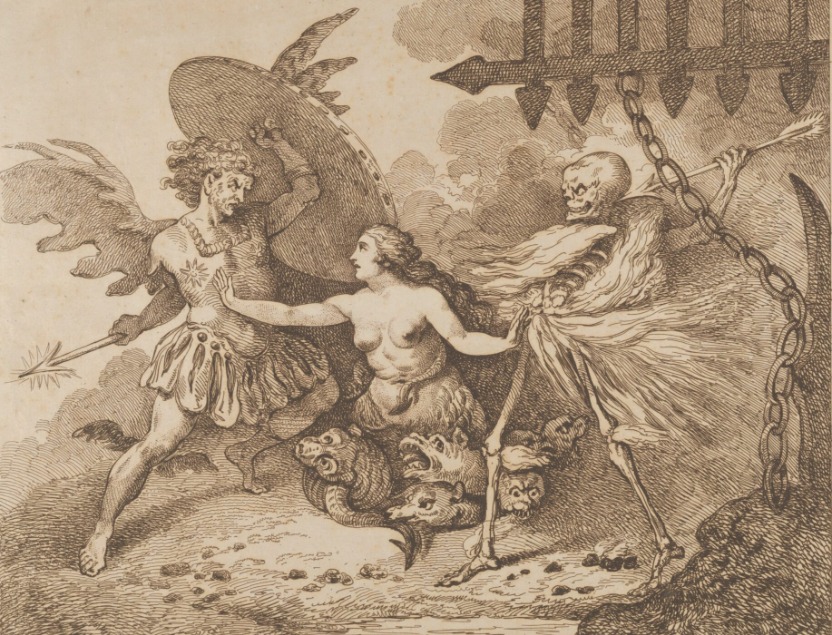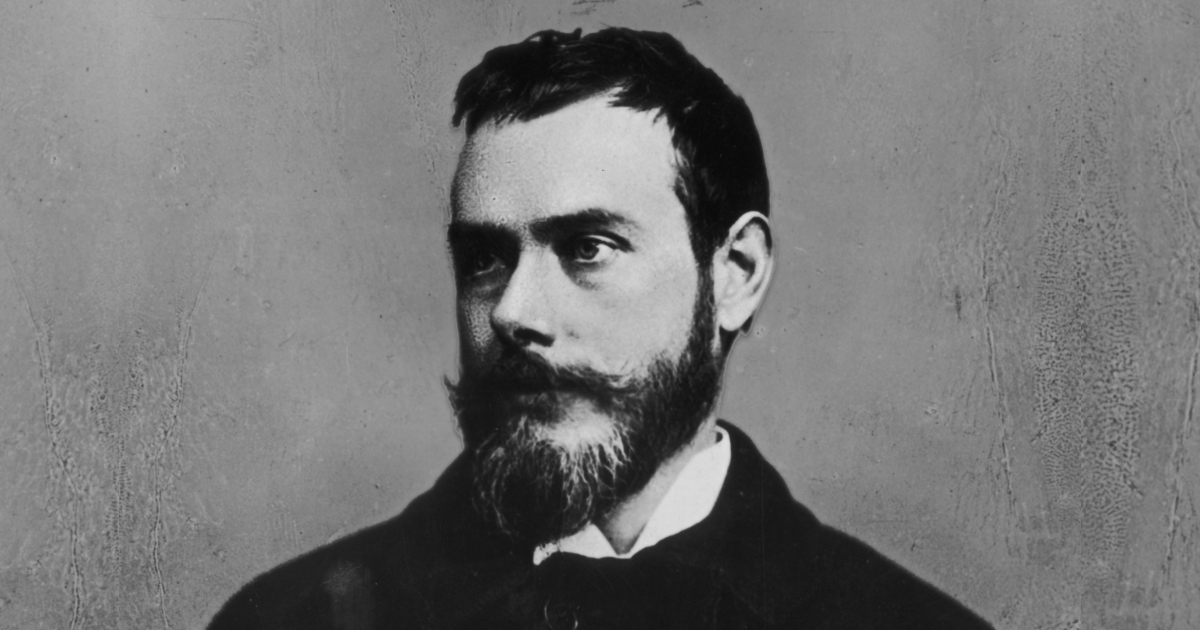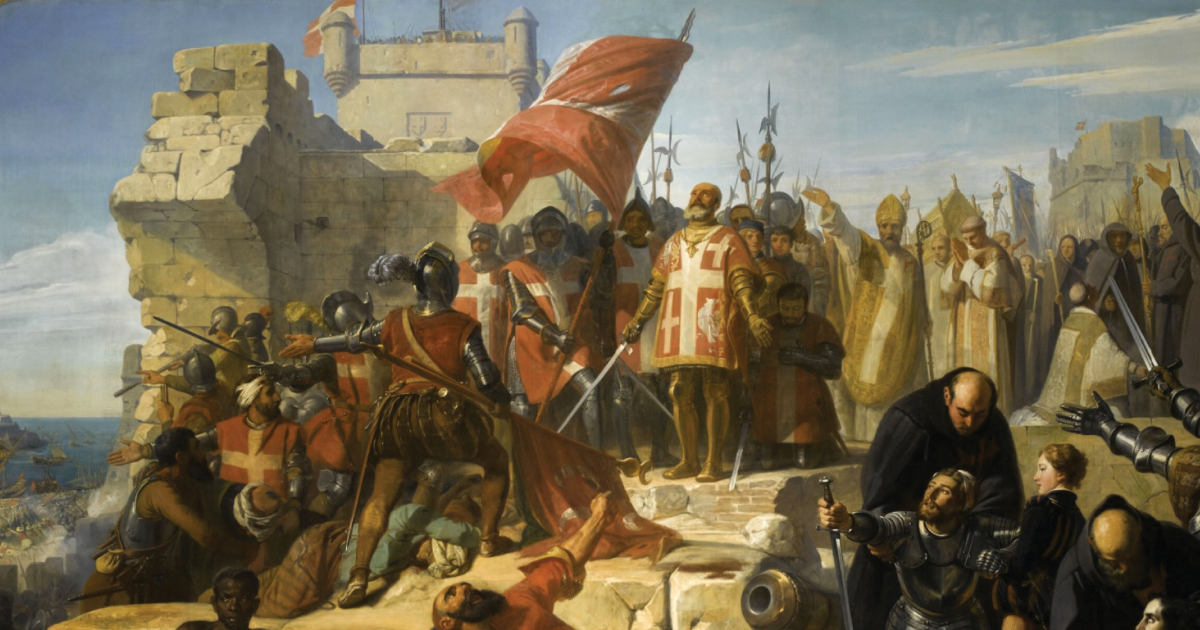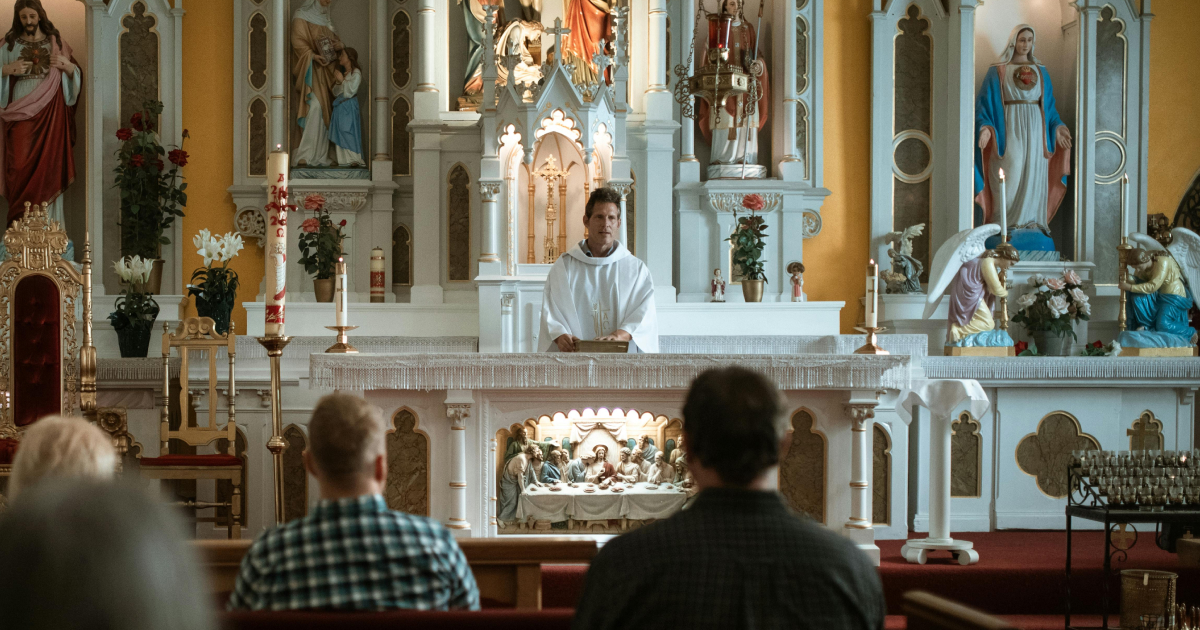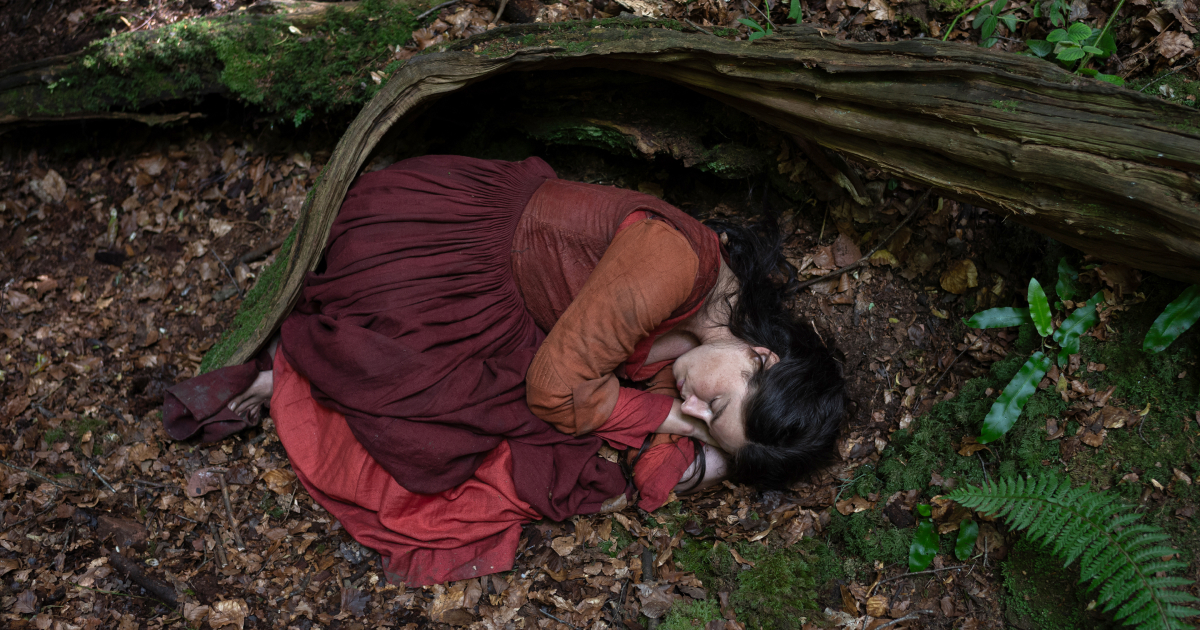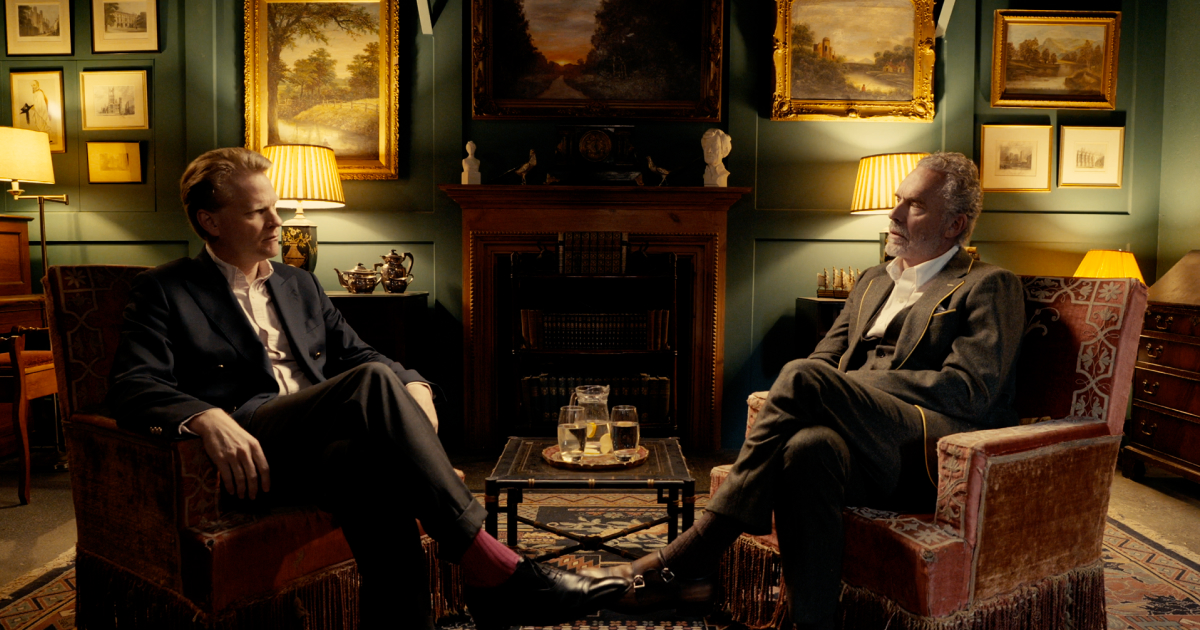The University of Oxford hosts a sermon every year in St Mary’s Church on the Sin of Pride. Part of the joke, in my day, was that they used to invite dons to preach who were not noted for their humility. The best I heard was given by John Sparrow, then Warden of All Souls. He made what I think was a useful distinction: vanity is a foible, and pride is a sin.
Sir Walter Elliot in Persuasion is vain. Sir Leicester Dedlock in Bleak House is proud. The vanity of Sir Walter makes us laugh. The pride of Sir Leicester leads ultimately to the ruin of his wife’s life.
Our generation uses the word “pride” in a number of ways which would have surprised Tertullian, or whoever first drew up the list of the Seven Deadly Sins. Parents who have a child who has enjoyed some success are told: “How proud you must be.” This does not mean pride in any sinful sense, but rather pleasure at their offspring’s achievement.
The “Gay Pride” marches of June do not mean that homosexual women or men are actually proud of something which is part of their nature: merely, that they were cheesed off by centuries of being told they ought to be ashamed of themselves. Pride the sin, superbia, is something quite other. Sin is deplored because it is something which cuts us off from the contemplation of God.
Hugh Trevor-Roper pointed out in another Oxford University-hosted sermon – he was asked to preach on the Grace of Humility – that the list of Deadly Sins was a fad of the medieval monasteries. They loved sevens, so they had to add avarice, gluttony and lust to make up the numbers. Pride, however, is the ultimate sin, and probably the best depiction of it in English literature is in the character of Satan in Paradise Lost.
It was understandable that the Romantics supposed that Milton had made Satan the hero of the epic, since there is something truly heroic about him. “What though the field be lost? / All is not lost. The unconquerable will, / And study of revenge, immortal hate / And courage never to submit or yield.” If the Romantic Movement in literature grew from a cult of the ego, it is no surprise that so many artists, such as Thomas Lawrence, found inspiration in Milton’s Satan.
But Pride is based on a totally false premise. That is, it believes there can be an alternative to God, that our own will ever could “defy the Omnipotent”. Dante hears the proud souls in Purgatory reciting the Lord’s Prayer. They are having to learn the lesson: “Thy will be done, on earth as it is in Heaven.”
It is only when we reach Dante’s Paradise that we find souls who are contented enough to say that in God’s will is their peace. For most of our human lives, we set our own wills against that of the Almighty. This is the essence of pride.
It is not necessarily the conceited person who is most consumed with the sin of pride. It is the person who cannot accept, emotionally, imaginatively, or as an act of the will, God’s omnipotence. That is why Pride is deadly.
The carnal sins are, much of the time, on the verge of comic. It is obvious why indulging in them could distract us from spiritual understanding. Equally, however, the carnal sins all contain within them certain elements of love – whether it is loving the beauty of another person, or a grateful passion for good food or wine.
Pride comes in disguise. It very often, as in Satan’s speeches in Milton, seems like heroism. Or it can take the form of an apparently justified self-satisfaction. In Purgatory, Dante meets the figure of Oderisi, one of the most brilliant of all craftsmen who made illuminated manuscripts. He reminds Dante of the way that artistic reputation is partly a matter of fashion, but it is also based on sound judgement.
Cimabue once held the field in painting, and then, lo and behold, Giotto came along, and stole Cimabue’s thunder. There was a wonderful account written, after the earthquakes which shook the basilica in Assisi, by the conservator who was hoisted on a winch and taken up into the rafters to restore the frescoes. Only when seen at such close quarters could you follow the progress of Cimabue and then – suddenly – there was a “new kid on the block”.
At the first fresco by Giotto, Dante’s words came to mind immediately. “Earthly fame is nothing but a breath of wind,” Oderisi tells the poet. Very helpful, no doubt, but can anyone who reaches the glorious conclusion to Dante’s great epic really believe – Franciscan tertiary though he may have been, and buried in the habit of his order – that Dante Alighieri had even begun to overcome the sin of Pride in his own incomparably haughty soul?
Photo: An illustration from 'Paradise Lost' of Satan, Sin and Death.
This article appears in the June issue of the Catholic Herald. To subscribe to our award-winning, thought-provoking magazine and have independent and high-calibre counter-cultural Catholic journalism delivered to your door anywhere in the world click HERE.
The University of Oxford hosts a sermon every year in St Mary’s Church on the Sin of Pride. Part of the joke, in my day, was that they used to invite dons to preach who were not noted for their humility. The best I heard was given by John Sparrow, then Warden of All Souls. He made what I think was a useful distinction: vanity is a foible, and pride is a sin.
Sir Walter Elliot in <em>Persuasion</em> is vain. Sir Leicester Dedlock in <em>Bleak House</em> is proud. The vanity of Sir Walter makes us laugh. The pride of Sir Leicester leads ultimately to the ruin of his wife’s life.
Our generation uses the word “pride” in a number of ways which would have surprised Tertullian, or whoever first drew up the list of the Seven Deadly Sins. Parents who have a child who has enjoyed some success are told: “How proud you must be.” This does not mean pride in any sinful sense, but rather pleasure at their offspring’s achievement.
The “Gay Pride” marches of June do not mean that homosexual women or men are actually proud of something which is part of their nature: merely, that they were cheesed off by centuries of being told they ought to be ashamed of themselves. Pride the sin, <em>superbia</em>, is something quite other. Sin is deplored because it is something which cuts us off from the contemplation of God.
Hugh Trevor-Roper pointed out in another Oxford University-hosted sermon – he was asked to preach on the Grace of Humility – that the list of Deadly Sins was a fad of the medieval monasteries. They loved sevens, so they had to add avarice, gluttony and lust to make up the numbers. Pride, however, is the ultimate sin, and probably the best depiction of it in English literature is in the character of Satan in <em>Paradise Lost</em>.
It was understandable that the Romantics supposed that Milton had made Satan the hero of the epic, since there is something truly heroic about him. “What though the field be lost? / All is not lost. The unconquerable will, / And study of revenge, immortal hate / And courage never to submit or yield.” If the Romantic Movement in literature grew from a cult of the ego, it is no surprise that so many artists, such as Thomas Lawrence, found inspiration in Milton’s Satan.
But Pride is based on a totally false premise. That is, it believes there can be an alternative to God, that our own will ever could “defy the Omnipotent”. Dante hears the proud souls in Purgatory reciting the Lord’s Prayer. They are having to learn the lesson: “Thy will be done, on earth as it is in Heaven.”
It is only when we reach Dante’s Paradise that we find souls who are contented enough to say that in God’s will is their peace. For most of our human lives, we set our own wills against that of the Almighty. This is the essence of pride.
It is not necessarily the conceited person who is most consumed with the sin of pride. It is the person who cannot accept, emotionally, imaginatively, or as an act of the will, God’s omnipotence. That is why Pride is deadly.
The carnal sins are, much of the time, on the verge of comic. It is obvious why indulging in them could distract us from spiritual understanding. Equally, however, the carnal sins all contain within them certain elements of love – whether it is loving the beauty of another person, or a grateful passion for good food or wine.
Pride comes in disguise. It very often, as in Satan’s speeches in Milton, seems like heroism. Or it can take the form of an apparently justified self-satisfaction. In Purgatory, Dante meets the figure of Oderisi, one of the most brilliant of all craftsmen who made illuminated manuscripts. He reminds Dante of the way that artistic reputation is partly a matter of fashion, but it is also based on sound judgement.
Cimabue once held the field in painting, and then, lo and behold, Giotto came along, and stole Cimabue’s thunder. There was a wonderful account written, after the earthquakes which shook the basilica in Assisi, by the conservator who was hoisted on a winch and taken up into the rafters to restore the frescoes. Only when seen at such close quarters could you follow the progress of Cimabue and then – suddenly – there was a “new kid on the block”.
At the first fresco by Giotto, Dante’s words came to mind immediately. “Earthly fame is nothing but a breath of wind,” Oderisi tells the poet. Very helpful, no doubt, but can anyone who reaches the glorious conclusion to Dante’s great epic really believe – Franciscan tertiary though he may have been, and buried in the habit of his order – that Dante Alighieri had even begun to overcome the sin of Pride in his own incomparably haughty soul?<br><br><em>Photo: An illustration from 'Paradise Lost' of Satan, Sin and Death. </em>
<strong><strong>This article appears in the June issue of the <em>Catholic Herald</em>. To subscribe to our award-winning, thought-provoking magazine and have independent and high-calibre counter-cultural Catholic journalism delivered to your door anywhere in the world click <a href="https://catholicherald.co.uk/subscribe/?swcfpc=1"><mark style="background-color:rgba(0, 0, 0, 0)" class="has-inline-color has-vivid-cyan-blue-color">HERE</mark></a></strong></strong>.






